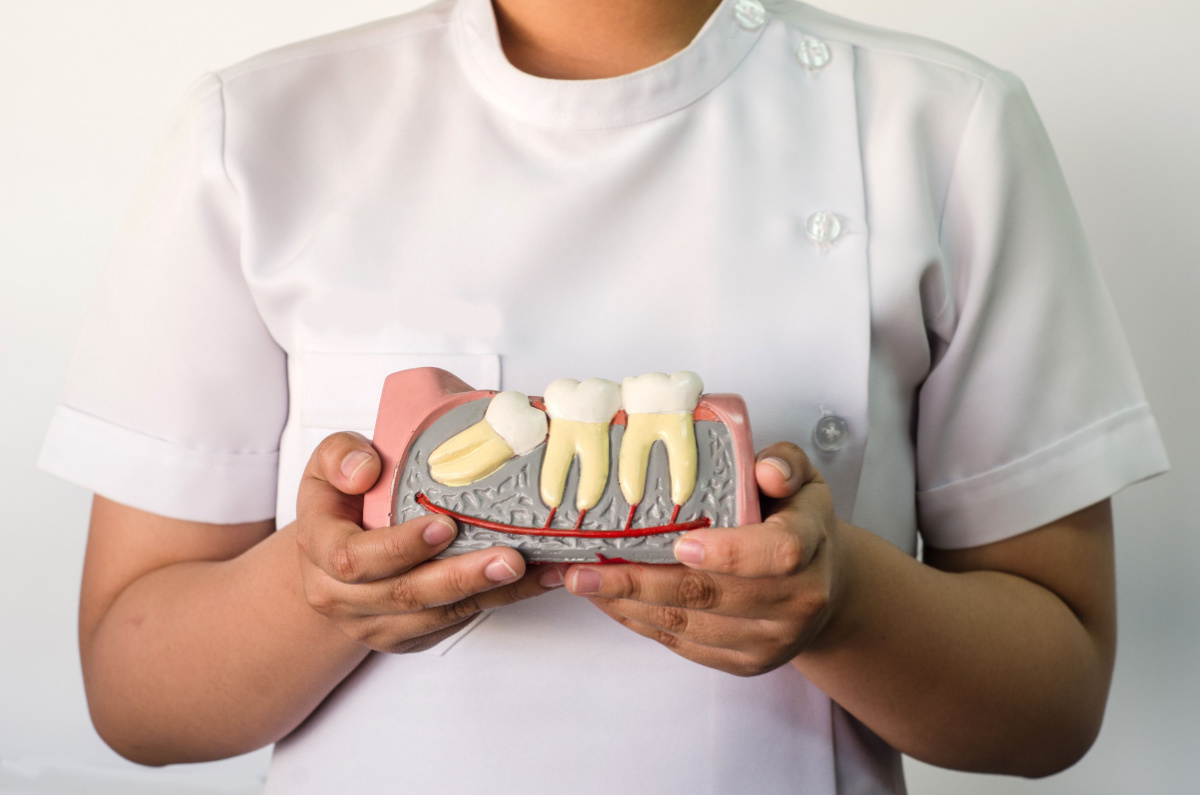In the wide world of dentistry, wisdom teeth often spark a lot of questions. Commonly known as third molars, wisdom teeth are typically the last adult teeth to make an appearance in our mouths. But why are they called wisdom teeth, and why do we have them in the first place? You may not have all the wisdom you need yet, but you will soon. Let’s talk about teeth!
What Are Wisdom Teeth?
Wisdom teeth are the final set of molars that most people get in their late teens or early twenties, typically between the ages of 17 and 21 (although ages can vary significantly based on the person). These teeth are called wisdom teeth because they appear at a time when a person is supposedly wiser than when their other adult teeth erupted. As such, they are a sign of adulthood and maturity.
A Dietary Necessity
Our ancestors had a different diet from ours, consisting mainly of raw meat, roots, leaves, and nuts, which required more chewing power. Therefore, wisdom teeth were necessary for survival. However, with the evolution of cooking techniques and utensils, our diets have become softer and easier to chew, reducing the need for these extra molars.
Wisdom Teeth Eruption: What to Expect
The process of wisdom teeth erupting through the gum can be uncomfortable and sometimes painful. Depending on how your wisdom teeth erupt, you might experience soft tissue swelling, pain, or difficulty opening your mouth. It’s especially important to maintain good oral hygiene during this time to prevent infections or gum disease. Regular check-ups with your dentist in Robbinsville, NJ, can help you monitor the progress of your wisdom teeth. Your dentist will utilize X-rays to see if your wisdom teeth are likely to cause problems.
No Wisdom? No Problem!
Have you been waiting for years and still not felt any wiser? It’s not your fault — some people are genetically predisposed not to develop wisdom teeth in the first place. This trait is more common in certain populations than others. For instance, according to a study by the University of Pennsylvania School of Dental Medicine, about 45% of a sample of Inuit people lacked wisdom teeth. If you’re among the lucky few who don’t develop wisdom teeth, it’s still important to keep a close eye on your dental X-rays in case something crops up later down the line (in some cases, literally!).
All About Wisdom Tooth Extraction
Sometimes, wisdom teeth don’t have enough room to grow properly. When this happens, they become impacted, meaning they are trapped under your gum or bone. An impacted wisdom tooth can cause various problems, including pain, damage to nearby teeth, and gum disease. It can also lead to the formation of a cyst around the wisdom tooth, which can damage the bones or roots of nearby teeth.
Many dentists recommend having your wisdom teeth extracted before they are fully formed to prevent these oral health issues. This procedure is typically performed under local or general anesthesia by an oral surgeon or maxillofacial surgeon. The surgical process involves making an incision in the gum tissue to expose the tooth and bone. The surgeon will then remove the affected wisdom teeth and clean the affected area to prevent dry socket, a painful condition that can occur after a tooth extraction.
The recovery process for wisdom teeth removal usually lasts a few days and involves resting and following a soft food diet to promote healing. Pain, swelling, and bruising are common post-extraction symptoms, but they can be managed with medication and ice packs. Your dental team will schedule several follow-up appointments to monitor your healing progress and ensure there are no complications. With proper care and attention, most people recover from wisdom teeth extraction without any major issues.
Make the Wise Choice!
Wisdom teeth are a fascinating aspect of our oral health. While they were once necessary for our ancestors, today they’re more of a burden than a benefit. From causing jaw aches to increasing the risk of gum disease, these “late bloomers” can be a real pain. However, with regular dental check-ups and good oral hygiene, any problems associated with wisdom teeth can be managed effectively. Remember, when it comes to your oral health, prevention is always better than cure.
At Hamilton Dental Associates, we understand the complexities of wisdom teeth and are committed to providing quality care for all your dental needs. Our team of experienced Hamilton orthodontics and dentistry professionals is here to help, whether you’re dealing with an impacted wisdom tooth or just need a quick cleaning. Don’t wait until you’re in pain — be “wise” about your oral health and book an appointment with us today!







